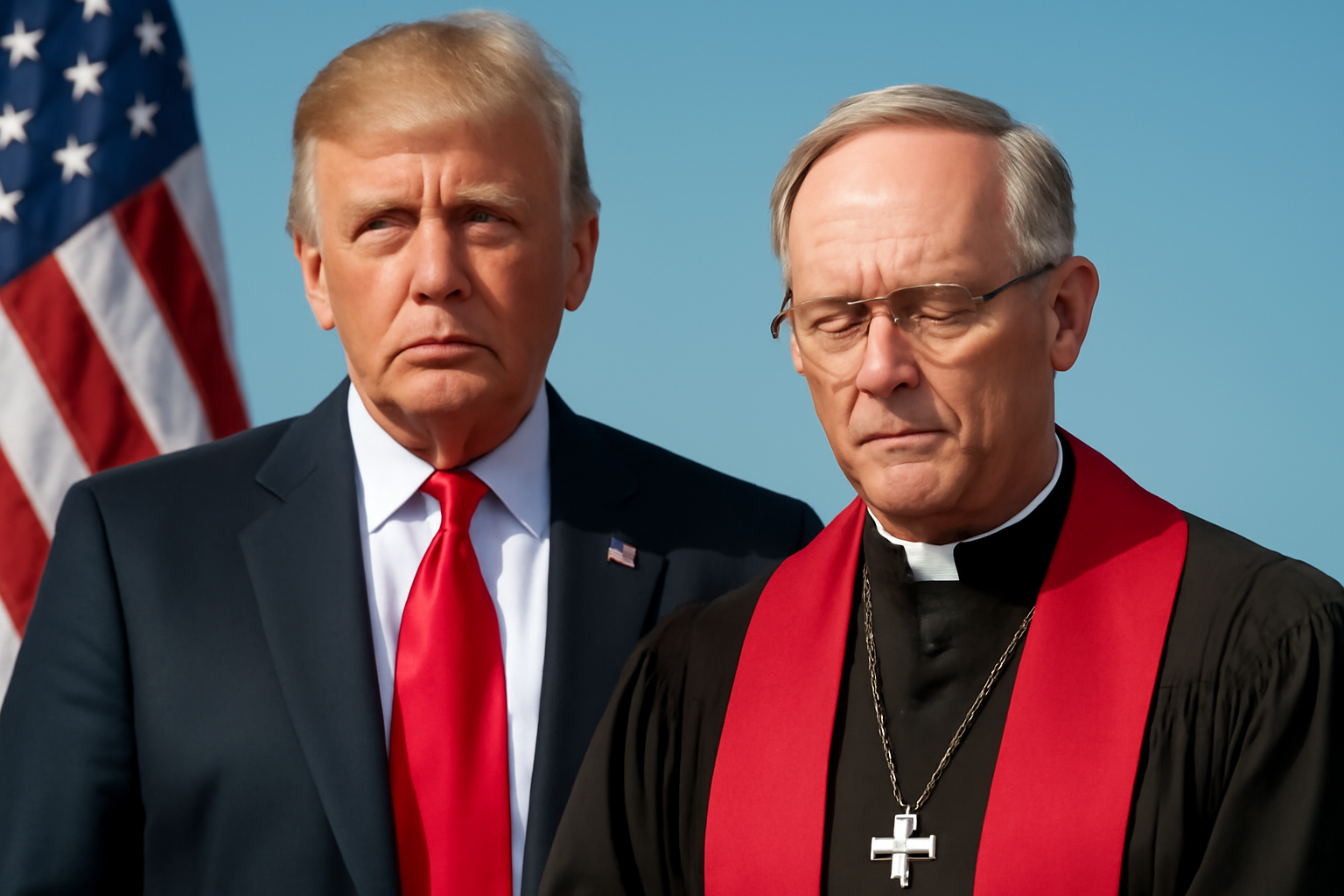
As political events unfold, particularly those involving high-level leadership transitions, the choice of religious figures invited to participate can become a focal point of discussion and sometimes controversy. This was certainly the case during the inauguration of Donald Trump, where the selection of clergy members included some figures known for their strong views on LGBTQ+ issues. This decision sparked conversations about the intersection of politics, religion, and the ongoing fight for LGBTQ+ rights.
The Intermingling of Religion and Politics
In many countries, including the United States, the separation of church and state is a foundational principle. However, religious influence often seeps into political spheres, especially during significant national events like presidential inaugurations. These ceremonies are not only a transfer of power but also a reflection of the values and priorities of the incoming administration.
Inviting clergy to perform prayers or blessings is a tradition intended to invoke guidance and reflect a sense of unity and moral direction. However, the selection of which religious leaders to include can convey implicit messages about the administration's values.
Controversial Choices and Public Reaction
During Donald Trump's inauguration, the inclusion of certain religious leaders known for their anti-LGBTQ+ stances drew significant attention. For many in the LGBTQ+ community and their allies, this decision seemed to signal a potential alignment with conservative values that have historically opposed LGBTQ+ rights.
The controversy highlights how religious affiliations and beliefs can influence political narratives and public perceptions. Critics argued that the inclusion of such figures could marginalize LGBTQ+ individuals and contradict efforts toward inclusivity and equality.
Historical Context and Implications
The relationship between political leaders and religious figures has a long and complex history. Throughout history, various leaders have leveraged religious symbolism and support to bolster their legitimacy and connect with certain voter bases. In modern times, this relationship continues to evolve, reflecting shifting cultural and societal norms.
The presence of clergy at inaugurations is a tradition that dates back to the earliest days of the United States, serving to provide a spiritual dimension to the proceedings. However, the specific choices of religious representation can serve as a barometer for broader societal dynamics and the administration's stance on key cultural issues.
The Importance of Inclusion and Representation
For many, the selection of religious figures at such high-visibility events underscores the ongoing struggle for inclusion and equal representation. It raises questions about whose voices and values are being amplified and whose are being overlooked.
Advocates for LGBTQ+ rights emphasize the need for inclusivity not just in political rhetoric but in actual practices and symbolic gestures. The acknowledgment and support of diverse identities are crucial steps toward achieving equality and dismantling systemic biases.
Moving Forward
As society continues to grapple with issues of equality and representation, the choices made by political leaders in terms of religious affiliations will remain a topic of scrutiny. It is essential for leaders to be mindful of the implications their decisions have on various communities and to strive for an inclusive approach that respects the diversity of the nation.
In conclusion, the intersection of religion and politics, particularly in high-profile events like presidential inaugurations, serves as a reminder of the power of symbolism in shaping public discourse. It is a call for continued dialogue and action towards a more inclusive and equitable society for all.
While the discussion around religious figures at political events will likely continue, it is an opportunity for reflection on the values that guide us and the society we aspire to build.
Related Posts
Triumphant Trans Woman Wins Legal Battle and Inspires Others to Stand Up for Their Rights
Breaking new ground: a landmark victory in transgender rights After battling in courtrooms and enduring endless challenges, Diana Portillo, a transgender woman, has secured a monumental victory in her decade-long fight against workplace discrimination. The result? Nearly $1 million awarded in a historic settlement. But this isn't just a win on paper—it represents a powerful precedent in combati [...]
Pride Month in Latin America: Protests and Demands for Equality
**Celebrating Pride and advocating LGBTQ+ rights in Latin America** Pride Month in Latin America was a lively mix where celebration met activism. Communities united, not just throwing a party but making a stand—demanding equality and pushing governments toward better protection and rights recognition. Throughout Latin America, pride events erupted in marches and cultural displays, each with a c [...]
Transgender Erasure Actions Implemented by National Park Service
```html Trump administration's impact on national park service and transgender recognition The Trump administration made notable moves in undermining transgender representation, which included directing agencies like National Park Service not include "T" and "Q" when they refered “LGBTQ” in any official communication. This move seems part a broader plan by this administration aimed at reducin [...]